Google does an Apple in reverse -- will drop H.264 support in Chrome

Would someone please stop the "Twilight Zone" music from playing. I'm hearing it now following today's Google bombshell (Yes, there is other news besides Verizon iPhone): Chrome will soon no longer support the H.264 codec. Google supports Flash Video, but Apple has abandoned it. Apple supports H.264, and Google is giving it up. Someone pinch me when there is something resembling sanity among these companies' positions. Perhaps Firefox can save us all and our online video streaming. No, wait! Mozilla also spurns H.264. Well, gulp, Internet Explorer anyone?
Apple's Flash abandonment is nutty enough, at least in the here and now, given how widely Adobe's technology is used on the Web. H.264 also is pervasive, making Google's plan as out of touch, from a user experience perspective. Then there is Google's support for Flash to consider. Am I missing something or isn't H.264 a primary Flash codec?
Can you switch from AT&T to Verizon iPhone without paying hefty termination fees?
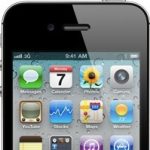
No, but you can act like you did. The iPhone's high resale value can cover early termination fees and possibly cost of a new handset from Verizon.
In December, I abandoned AT&T and iPhone 4, returning to T-Mobile with the Samsung-manufactured, Google-branded Nexus S. AT&T charges a $325 ETF for smartphones, which is prorated depending on number of months left on the contract. I signed up for new AT&T service is June, making my December ETF $275. That set the minimum price for which I would sell iPhone 4.
Windows MultiPoint Server 2011 will be available in March
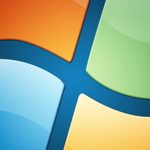
Microsoft picked a helluva day to make its official Windows MultiPoint Server 2011 announcement -- what with techdom obsessed with the Verizon iPhone. But it's a brave lot of product managers up there in Redmond, Wash., or perhaps employees can't see past the benefits of their free Windows Phone 7 handsets. Whatever, this morning, Microsoft announced that Windows MultiPoint Server 2011 will be available through volume-licensing channels starting in March and from OEMs sometime in second quarter.
Here's the deal: Windows MultiPoint Server 2010 volume-license subscribers get the new version for free. "If customers want to purchase MultiPoint Server today, they simply need to purchase with SA in order to have the rights to MultiPoint Server 2011 upon availability," writes Dean Paron in a Microsoft blog post. Software Assurance customers can get the newer version in March.
Would you buy Verizon iPhone?

It's the question of the morning, now that Verizon has announced iPhone 4 is coming to its network. Verizon made the announcement just after 11 am ET at a press briefing in New York -- a venue that is sure to please Wall Street analysts and investors. But for all the rumors and speculation and now answers to if or when the real question is: Will you buy Verizon iPhone? Would you switch from another carrier for Verizon iPhone? More significantly, would you give up iPhone on AT&T to get it? Please answer in comments or e-mail joewilcox at gmail.com.
The questions are relevant, even though the phone won't be available for some time. Existing Verizon customers can preorder on February 3 and everyone else on February 10. Verizon's iPhone 4 will cost pennies more than AT&T's -- $199.99 for 16GB model and $299.99 for 32GB model, subsidized with two-year contractual commitment. But there's an extra bonus: Mobile hotspot for up to five devices.
IBM received nearly 23 patents per working day in 2010 -- will big companies become patent trolls?

The US Patent and Trademark Office awarded IBM an average 16 patents per day in 2010, for a total 5,896. Second-ranked Samsung received 12.5 patents per day, or 4,551 for the year. Not be left out, Microsoft's daily average was 8.5, or 3,094 last year. So, the three companies awarded the most patents, all from the tech sector, received 13,541 patents, or 37 per day. But wait! There are only 261 days in a typical working year, making the per-day totals for IBM, Samsung and Microsoft much higher: 22.6, 17.4 and 11.8, respectively.
Utility patent awards rose 31 percent year over year to 219,614 (according to IFI Claims Patent Services) from 167,349 (according to the US Patent and Trademark Office). IBM accounted for about 2.7 percent of patents issued -- with Samsung and Microsoft 6.25 percent. The top-10 receivers, all of them tech companies, were issued 27,594 patents, or 12.5 percent of the 2010 total.
Oh, my, look how Apple's fortunes changed in 8 years
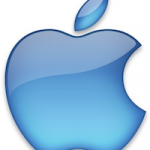
This afternoon, I searched the CNET News.com archives to see if I had written something about Apple launching iTunes in January 2001. Hey, it's the 10th anniversary. But another story caught my attention: "Merrill Lynch to Apple Investors: Sell," from Jan. 7, 2003. On the eve of Macworld, with Apple shares at $14.85, analyst Michael Hillmeyer reinstated Apple coverage with "sell."
"Although Apple makes great products, in our view the new product pipeline looks skimpy and we expect continued market share losses," Hillmeyer wrote in a note to investors. "A product differentiation strategy is difficult in a business increasingly commoditizing."
End of an era: Bob Muglia is leaving Microsoft

The leader of Microsoft's Server and Tools Business goes out with a slap in the face.
In an executive e-mail released by Microsoft today, CEO Steve Ballmer revealed Bob Muglia's departure. The Microsoft veteran played an essential role building up the Server and Tools Business division, and he is popular with software developers. Muglia joined Microsoft in 1988 and became president of the Server and Tools Business two years ago this month.
2011: The year of Google
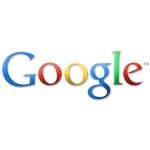
By just about every measure, 2010 was a great year for Google -- perhaps its best ever. So I'm surprised to have read over the last 10 days or so, several commentaries and punditries asserting that Google has slowed down and is losing its competitive edge. These prognosticators of Google doom are fraking crazy. Anyone who asserts that Google has lost its mojo is simply and absolutely clueless.
Google is on a roll and showing its mojo everywhere. No tech company on the planet is iterating products and services faster than Google. Not a week goes by when Google isn't announcing something new somewhere. Perhaps some of Google's critics aren't paying close enough attention, since there are few Apple-like media events, which draw lots of attention.
Why Verizon won't let Apple announce iPhone

Verizon isn't taking any shit from Apple.
Late yesterday, the wireless carrier set Wall Street and the Web abuzz with invitations to a mysterious January 11 event in New York. Several Apple journalists reported receiving the invites, including veteran Mac reporter Jim Dalrymple (disclosure: we're friends, and I hope will still be after this post). The timing fits with other rumors about the imminent launch of iPhone 4 -- let's call it iPhone 4.5 for this post -- on Verizon Wireless. I say iPhone 4.5, because this isn't your daddy's GSM handset. Verizon's network is CDMA, and it's moving to LTE.
Could it be iPhone really and finally is coming to Verizon?
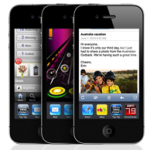
What would another day be without somebody, somewhere having some kind of inside information -- from (gasp) unnamed, so-called reliable sources -- that the iPhone is coming to Verizon? Next year. Next month. Next week. Next day. Next minute. Two new dates have popped up -- January 11 and February 3 -- over the last 24 hours. Could it all be true this time?
January 11 is interesting if no other reason than it's closer. Today, several journalists received invitations to a special, unnamed Verizon event in New York City next week. My buddy Jim Dalrymple received an invite. He writes: "While it doesn't mention anything about Apple this could be the Verizon iPhone." TechCrunch's MG Siegler got one, too. Now there's someone who is an Apple hugger du jour.
Can you feel the noose, Apple? Android gains against flat US iPhone market share

What do the US market share leaders for cell phones and smartphone operating systems have in common? Android.
Yesterday, ComScore released September to November US mobile subscriber market share. Yes, I initially thought to cover it then, but there was simply too much news from the first official day of the Consumer Electronics Show. So here we are a day later.
Mac App Store tops 1 million downloads during first 24 hours
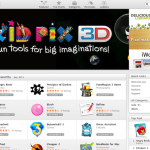
Apple just won't let it go. While the rest of the industry is focused on the Consumer Electronics Show (Apple isn't there), the company keeps trying to steal other tech vendors' thunder. ;-) First, Apple launched the Mac App Store on CES 2011 Day 1. Now it's announced that Mac users downloaded 1 million apps within the first 24 hours. Yeah, but how many people paid?
"We're amazed at the incredible response the Mac App Store is getting," Apple CEO Steve Jobs said in a statement. "Developers have done a great job bringing apps to the store and users are loving how easy and fun the Mac App Store is."
5 things you should learn from CES 2011
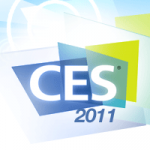
Today may officially be Day 2 of the Consumer Electronics Show, but, based on vendor announcements, it's really the fifth day. CES has a few lessons for those who live and breath tech, whether they work in the industry or follow it as analysts, bloggers, investors or journalists.
1. Rumors are often false. I shouldn't have to state this. Short of a reliable gadget blog/news site getting hands on a verifiably-authentic photo or video of something new -- or actual product -- rumors can't be trusted. The more general or speculative, the more likely to lead nowhere.
Apple's Mac App Store fundamentally changes PC software usage rights
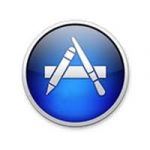
Earlier today, Apple officially launched its application store for Macintosh, with about 1,000 free and paid applications available. Snow Leopard users download the Mac OS X 10.6.6 update, and the store is included. But people using the software are in for a change. Consumers typically buy software by machine. Those people buying from the Mac App Store purchase by person. The software is attached to an identity. This is a dramatic departure from how consumer software is typically licensed.
Licensing agreements typically restrict installation on one PC, sometimes two or even three. If a consumer goes into a store and buys, say, Microsoft Office, the purchase ultimately is tied to a computer. For years, Microsoft took machine purchases on trust, but in 2001 added product activation to Office and later Windows. Office 2011 is the first Mac version of the productivity suite to require product activation, which essentially locks the software to a computer. Not a person. Similarly, when a new PC ships with Windows, the license is tied to the machine not the buyer.
Olympus woos enthusiasts, photo pros with XZ-1 and PEN E-PL2 digicams

Olympus announced two new cameras at the Consumer Electronics Show, and, man, are they hot -- the diminutive XZ-1 and classy PEN E-PL2. Both cameras should appeal to enthusiasts and to pro photographers looking to carry a lighter kit. Honey, get the credit card. I want both.
The XZ-1 is Olympus' response to other high-end compacts, such as the Canon S95, Nikon Coolpix P7000, and Panasonic Lumix DMC-LX5 (I got the Lumix DMC-ZS7 for Christmas; get the gift receipt because it's going back for refund). These cameras generally pack high-end features, such as big-aperture lenses and RAW-capture capability. The XZ-1's f/1.8 lens is remarkable in a compact and will let in lots of light (the PowerShot S95 is f/2.0) for shooting in dimly-lit areas or for better producing the bokeh, or background blur effect, popular for portrait photography. Perhaps more than any other feature, the lens distinguishes the XZ-1 from other high-end compacts.
Joe's Bio
Joe Wilcox is BetaNews executive editor. His motto: Change the rules. Joe is a former CNET News staff writer, JupiterResearch senior analyst, and Ziff Davis Enterprise Microsoft Watch editor.
Ethics StatementBetaNews, your source for breaking tech news, reviews, and in-depth reporting since 1998.
© 1998-2025 BetaNews, Inc. All Rights Reserved. About Us - Privacy Policy - Cookie Policy - Sitemap.
